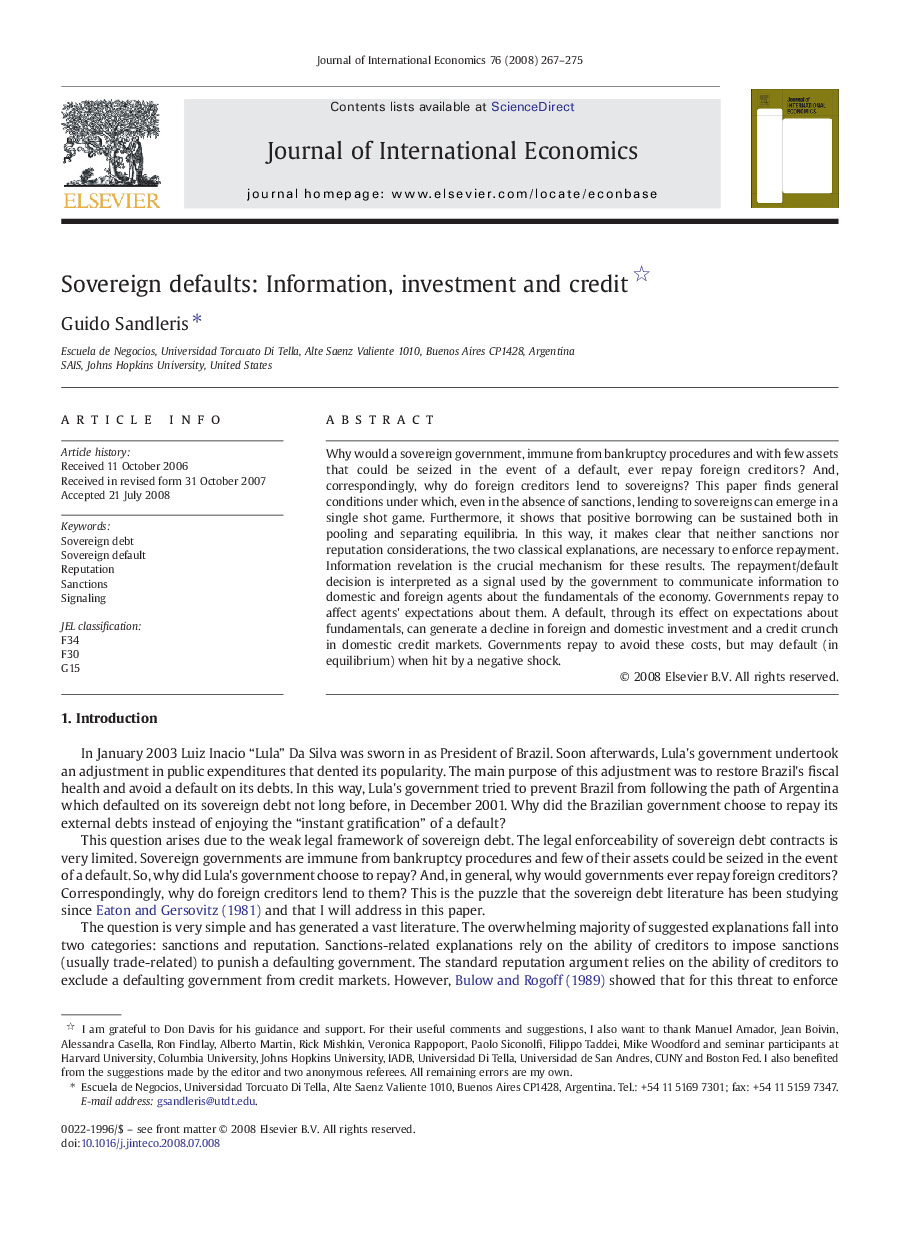| Article ID | Journal | Published Year | Pages | File Type |
|---|---|---|---|---|
| 962486 | Journal of International Economics | 2008 | 9 Pages |
Abstract
Why would a sovereign government, immune from bankruptcy procedures and with few assets that could be seized in the event of a default, ever repay foreign creditors? And, correspondingly, why do foreign creditors lend to sovereigns? This paper finds general conditions under which, even in the absence of sanctions, lending to sovereigns can emerge in a single shot game. Furthermore, it shows that positive borrowing can be sustained both in pooling and separating equilibria. In this way, it makes clear that neither sanctions nor reputation considerations, the two classical explanations, are necessary to enforce repayment. Information revelation is the crucial mechanism for these results. The repayment/default decision is interpreted as a signal used by the government to communicate information to domestic and foreign agents about the fundamentals of the economy. Governments repay to affect agents' expectations about them. A default, through its effect on expectations about fundamentals, can generate a decline in foreign and domestic investment and a credit crunch in domestic credit markets. Governments repay to avoid these costs, but may default (in equilibrium) when hit by a negative shock.
Related Topics
Social Sciences and Humanities
Economics, Econometrics and Finance
Economics and Econometrics
Authors
Guido Sandleris,
